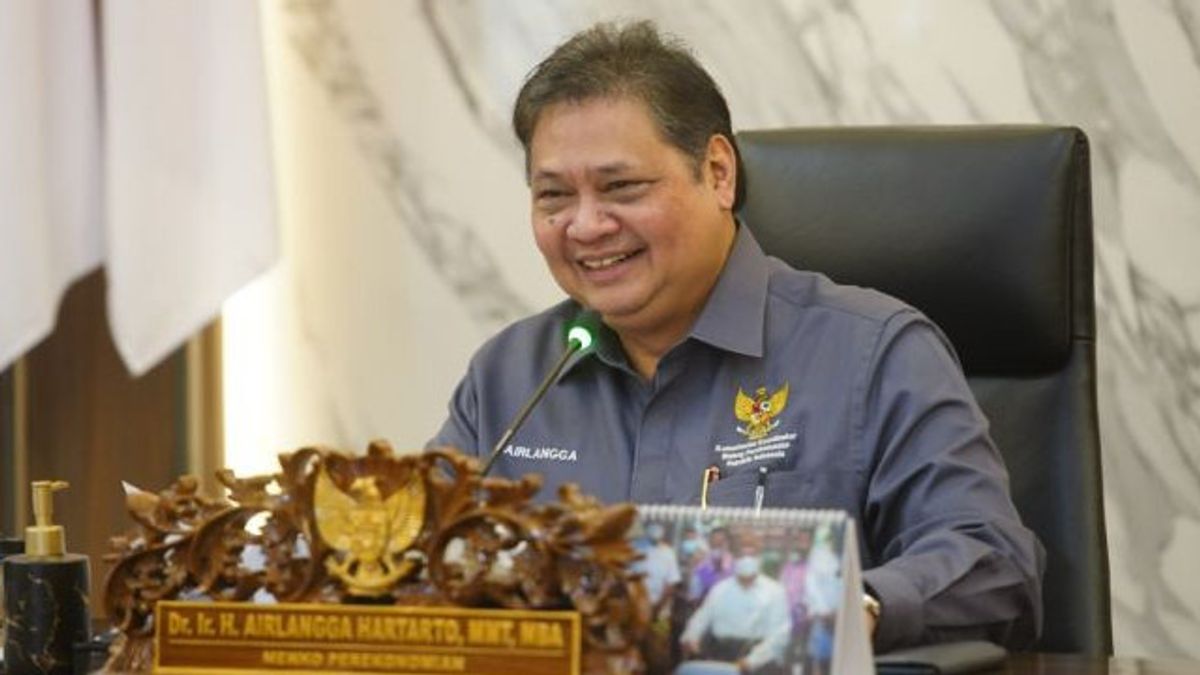Coordinating Minister for the Economy Airlangga Hartarto said Indonesia's inflation achievement was still under control amid the high inflation trend that was still happening in various countries.
"Like the European Union, inflation is currently recorded at 10 percent year-on-year (yoy) in November 2022. Then, India and the United States, the realization of inflation was recorded at 6.77 percent (yoy) and 7.7 percent (yoy), respectively," said Airlangga in an official statement in Jakarta, quoted from Antara, Friday, December 2.
Indonesia's inflationary pressure in November 2022 is sloping from the previous month's inflation rate. On an annual basis, inflation in November 2022 was recorded at 5.42 percent (yoy) or decreased compared to inflation in October 2022 of 5.71 percent (yoy).
He explained that this decline was supported by volatile food price inflation or declining volatile food because the extra business of controlling inflation for all parties in the midst of government-regulated price inflation or high administrative prices. Meanwhile, monthly, in November, inflation was recorded at 0.09 percent (month-to-month/mtm).
While foreign demand is experiencing a deep decline due to global economic conditions that tend to weaken, domestic demand remains strong, so that the performance of Indonesia's Manufacturing Purchasing Managers' Index (PMI) in November 2022 continues its expansionary level for 15 consecutive months by being in position 50.3.
This performance further shows that the solidity of domestic economic fundamentals because the performance of the Manufacturing PMIs of various countries around the world has actually fallen to a contractive level, such as the European Zone (47.3), Japan (49.0), Germany (46.7), and China (49.2). Indonesia's PMI levels are also above several ASEAN countries, such as Malaysia (47.9), Vietnam (47.4), and Myanmar (44.6).
Airlangga said the impact of the adjustment of fuel oil prices (BBM) on the transportation sector had eased, as seen from the transportation sector group that did not contribute to inflation.
Several interventions from local governments through the Regional Inflation Control Team (TPID) in an effort to suppress inflation were carried out, among others, through supply control, provision of transportation subsidies, market operations, and community movements such as the fast harvest food planting movement.
Apart from the existing budget, some of these programs are allocated through a mandatory social protection budget of two percent of the general transfer fund (DTU). Based on data from the Ministry of Finance as of November 30, 2022, the realization of mandatory social protection expenditures amounted to Rp954.50 billion.
"Although the achievement of inflation after fuel adjustment remains under control, the central government, local governments, and Bank Indonesia, will continue to strengthen synergies to anticipate potential increases in demand and prices at Christmas 2022 and New Year 2023 moments through various extra efforts by ensuring sufficient supply and stable prices," he said.
In addition, he continued, optimizing the use of the mandatory social protection budget from DTU will also continue to be encouraged until the end of the year to support the achievement of Indonesian inflation in 2022 to remain under control.
The English, Chinese, Japanese, Arabic, and French versions are automatically generated by the AI. So there may still be inaccuracies in translating, please always see Indonesian as our main language. (system supported by DigitalSiber.id)













